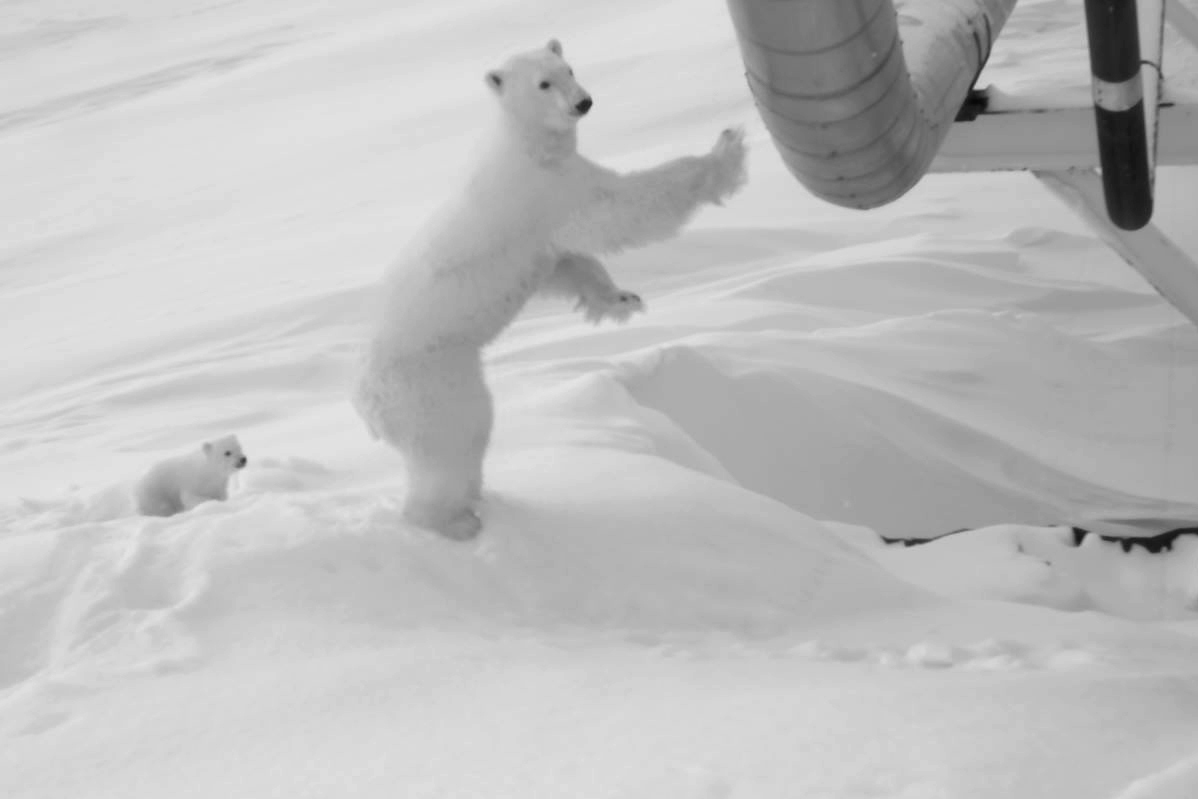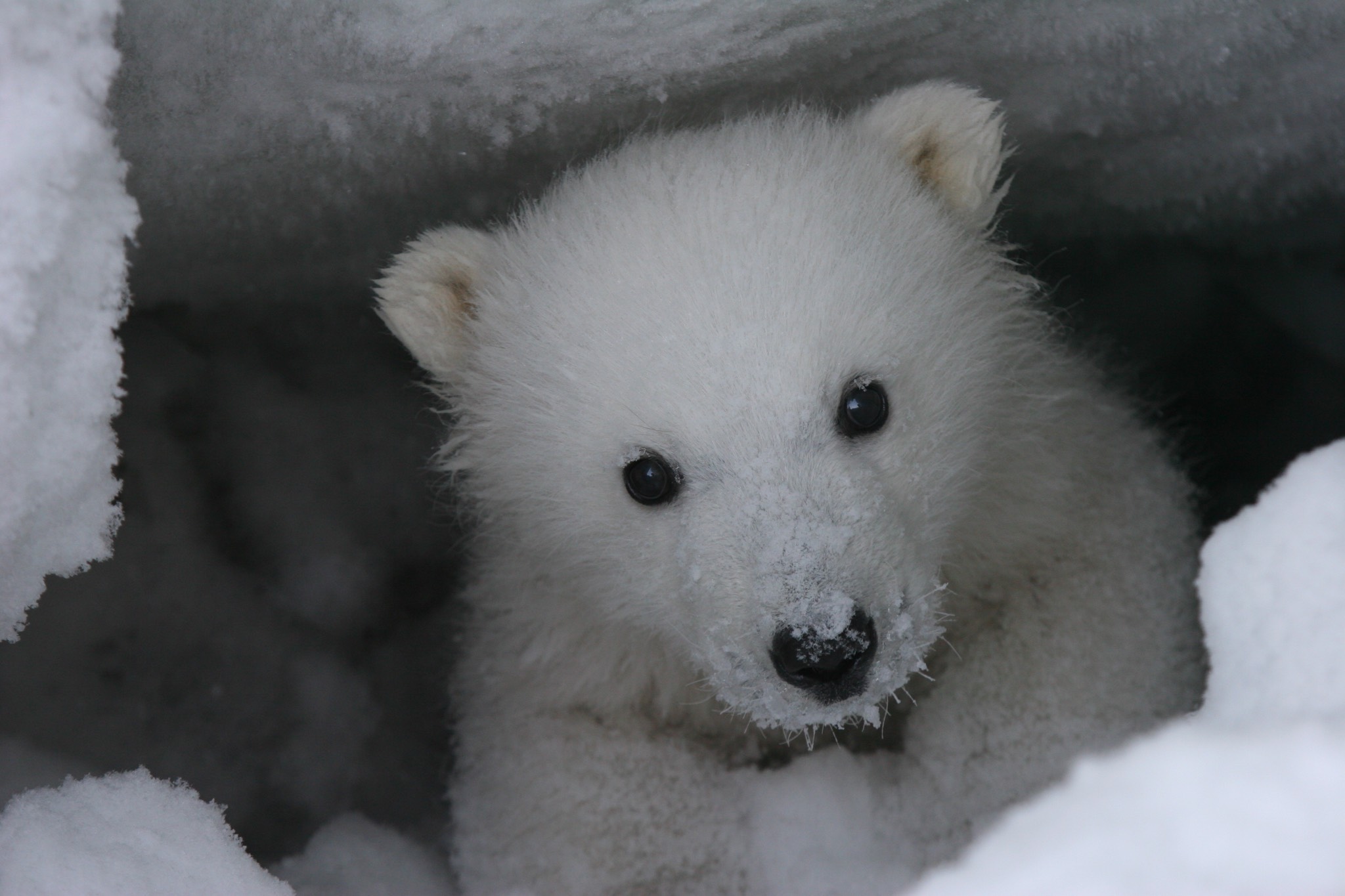Legislation seeks to protect polar bear denning habitat in Arctic refuge
A new bill would extend an existing one-mile buffer rule from known den sites to include denning habitat.

A new bill introduced in Congress would forbid any oil-related development within a mile of polar bear denning habitat in the Arctic National Wildlife Refuge.
The “Polar Bear Cub Survival Act” was introduced Thursday by U.S. Rep. Jared Huffman in anticipation of a Trump administration announcement on a lease sale in the refuge.
Oil development there would have “devastating consequences” for the refuge’s environment and animals, including polar bears, Huffman, a California Democrat, said in a statement.
“My bill takes a clear, science-driven approach to protecting this imperiled polar bear population from proposed oil activities in the Arctic Refuge as the government continues to haggle over the ill-conceived plan to lease, explore, and develop one of the last sacred American wildernesses,” Huffman said.
Currently, the oil industry on the North Slope is required — under a mandate from the U.S. Fish and Wildlife Service — to maintain a one-mile buffer around known polar bear dens. Huffman’s bill goes beyond that by specifying protections for denning habitat.
Female polar bears dig dens in the snow to bear cubs and nurture them in their first months of life. As sea ice has diminished, Alaska’s polar bears have become much more likely to dig those dens on land rather than out on the ice pack, and the Arctic National Wildlife Refuge coastal plain is an area well-used by denning polar bears. A 2006 study by U.S. Geological Survey scientists found that the refuge’s coastal area, where oil development has not yet occurred, holds 38 percent more den habitat than does the central North Slope coastline, where oil development has occurred for decades.

Some new studies demonstrate the dangers of oil development near polar bear dens. One found that more than half of the dens are missed by the industry’s thermal-imagery surveys, leaving those sites vulnerable to disturbance. Another study found that maternal polar bears are reluctant to leave their dens even when stressed by disturbance, putting them and their cubs in danger of being crushed by industrial vehicles. That study found that the one-mile buffer used by industry is effective protection for denning bears.
Those new studies helped inform the legislation, said Mary Hurrell, a spokeswoman for Huffman.
“The studies on polar bear denning behavior, and the ineffective use of existing industry practices, indicates that more needs to be done to protect polar bears,” she said in an email.
Huffman’s bill also reflects new knowledge about the future of the world’s polar bear populations, Hurrell said. A recent study concludes that polar bear populations will collapse — starting with loss of cubs — if carbon emissions are not substantially curbed.
Those projections “are a reminder of the multiple threats, from oil development to climate change, facing Arctic-wide populations,” she said.
While Trump administration officials vowed last year to hold a lease sale by the end of 2019, that has not yet happened. No lease sale may be scheduled until there is a record of decision issued affirming it, said Lesli Ellis-Wouters, spokeswoman for the Bureau of Land Management’s Alaska office. The final environmental impact statement on oil leasing was released by the BLM last September, but no record of decision has been issued yet.
The polar bear bill introduction is not the only legislative action Huffman took Thursday to serve as a check on Trump administration’s resource-extraction plans for Alaska.
He and several Democratic colleagues also submitted an amendment to an appropriations bill that would bar the U.S. Army Corps of Engineers from using any of that money on a record of decision for a permit allowing construction of the controversial Pebble Mine project in southwestern Alaska. The U.S. House on Thursday approved the amendment.